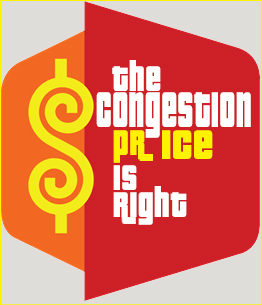It wasn’t just Hakeem from Brooklyn. Or Amtrak Joe. It was also the unions.

The conventional wisdom holds that high-level Dems, including possibly the president himself, demanded that Gov. Hochul kill congestion pricing. But that only tells part of the story. The municipal unions jumped ship well before June 5.
Very few teachers, cops and firefighters — 15 percent at most, but probably less — work in the Manhattan congestion zone. And some of them already take transit, as veteran schoolteacher Mike Dowd reminded us not long ago. This means that 90 percent or more won’t face a toll and will benefit, with other New Yorkers, from less traffic and transit betterment.
That argument is numerically ironclad, yet it can seem detached from the tooth-and-nail nature of laboring for a living. Solidarity — the idea that an injury to one is an injury to all — is the foundation of organized labor, so the $15 toll ripples beyond the small number who may actually pay.
Grievances abound as well. Municipal workers dwell amid a swirl of complaints, not just over crummy salaries but about conditions of employment. Rickety pensions, stifling work rules, short-staffing and capricious supervision beget endless gripes and fuel us-versus-them narratives. Amid this zero-sum mix, a bold and potentially liberating policy can come across as a new form of oppression.
To be clear, my own worldview ranks solidarity highly. (I recommend Leah Hunt-Hendrix’s and Astra Taylor’s new book with that name.) Inequality and plutocracy have corrosive effects on our climate, culture and politics. Labor militancy nationwide is spearheading the pushback.

But a broadened perspective doesn’t absolve the city’s labor movement for rejecting congestion pricing. The prime culprit is Transport Workers Union standard-bearer John Samuelsen, who since 2009 has led TWU Local 100 and in 2017 was named president of the TWU International. His devolution from supporter to opponent was, I believe, a key factor in Hochul’s similar journey.
It’s also a head-scratcher.
In 2019, Samuelsen helped pass the congestion pricing law by touting the policy’s boon to working people citywide; to workers in New York state factories where the new train cars and buses would be fabricated; and to his members, who would be uplifted by better transit. In solidarity, leaders of other unions sidelined their windshield perspectives and went along.
That was then. In his own turnabout, Samuelsen resigned from the Traffic Mobility Review Board last Nov. 30, the same day it issued its tolling recommendations. In failing to expand bus and subway service from the city’s transit deserts ahead of the tolls, the MTA had “failed to meet the moment,” he charged, according to The City. Samuelsen’s abrupt break with the lumbering approval process gave license to the United Federation of Teachers and other unions to cast congestion pricing as an attack on the city’s ever-beleaguered middle class.
He made one solid point: New York officials had pledged to expand transit into the congestion zone before starting the tolls, as did London in 2003. Instead, the taxi and Uber congestion surcharge revenues — enacted for that purpose in 2018 — were funneled elsewhere by then-Gov. Cuomo. Successive mayors, moreover, stalled on carving out the express lanes that were to have been the linchpin of new bus service.
Still, Samuelsen’s critique of congestion pricing had a distinctly one-sided cast. Neither in his resignation letter nor since has he called out officials’ failure to bust fake placards and cut municipal employees’ free-parking permits, for example, even though that was Recommendation No. 3 of the Fix NYC panel on which Samuelsen served.
Moreover, his dogged insistence on "massive increases" in transit service flew in the face of the 30-percent post-Covid falloff in ridership.
"Congestion pricing alone will not reduce traffic to its fullest potential," he argued in his resignation letter. "Central business district tolling should absolutely be coupled with massive increases and improvements in public transit service. The MTA … has failed to meet the moment. This was [a] once-in-a-lifetime opportunity to trigger a paradigm shift in commuter behavior. The MTA chose not to go 'all in.' As a result, congestion pricing will likely fail to reduce congestion to a level which meets the expectations of many who robustly support its goals."
So for all its earnestness, Samuelsen’s plaint reads as a textbook instance of the overreach known as letting the perfect be the enemy of the good.
It’s true that the MTA's final congestion pricing plan would have immediately improved congestion-zone travel speeds by only 8 to 10 percent, according to my traffic modeling. But a 15- to 16-percent improvement would have emerged over time — once the “stick” of a new toll could be joined by the “carrot” of better transit funded by the congestion revenues. Instituting the bulk of those improvements up front was never in the congestion pricing cards.
But because the first wave of travel-speed gains would merely be good rather than great, Samuelsen jumped ship — at least in his telling. Within a month, the UFT joined Staten Island Borough President Vito Fossella’s federal lawsuit seeking to halt congestion pricing, and the Municipal Labor Committee, the umbrella organization for the city’s public-employee unions, filed an amicus brief in support, as reported by the labor news source Work-Bites.
Of course, all this has more than a whiff of political posturing. When Samuelsen told the New York Post in March that “Th[e] toll is very classist [and] will whip blue collar, outer-borough workers,” he wasn’t just bemoaning its imperfect congestion reductions. He was throwing down the gauntlet for exemptions so his and other municipal union members can keep driving into the congestion zone without a toll.
Since June 5, however, Samuelsen seems to be having second thoughts, telling NY Focus in July, “Hochul’s got a conundrum."
“The greatest transportation system in the world could potentially fall into a state of disrepair and an epic failure of service delivery if she doesn’t find the funding,” he said.
Do we laugh or do we cry? How about both? Organized labor’s perennial non-congestion-pricing transit-funding source — restoring the state’s Stock Transfer Tax — is so much pie in the sky, not just according to the business-funded Citizens Budget Commission but in my own view as well. And even if that or some other money-tree were to emerge, it would come with none of congestion pricing’s traffic-thinning benefits.
Not every power struggle is bosses against workers, or Wall St. against Main St. There’s been a century-long power struggle of cars vs. people and, for too many decades, of a coddled carriage class vs. over-burdened pedestrians and straphangers. Not every person who drives into the congestion zone is privileged, but their choice to drive there creates inescapable harms.
Thanks in part to Samuelsen’s sabotage, not just his own TWU and other city workers but all New Yorkers are staring into an abyss of impoverished transit and world-leading traffic dysfunction in perpetuity.






